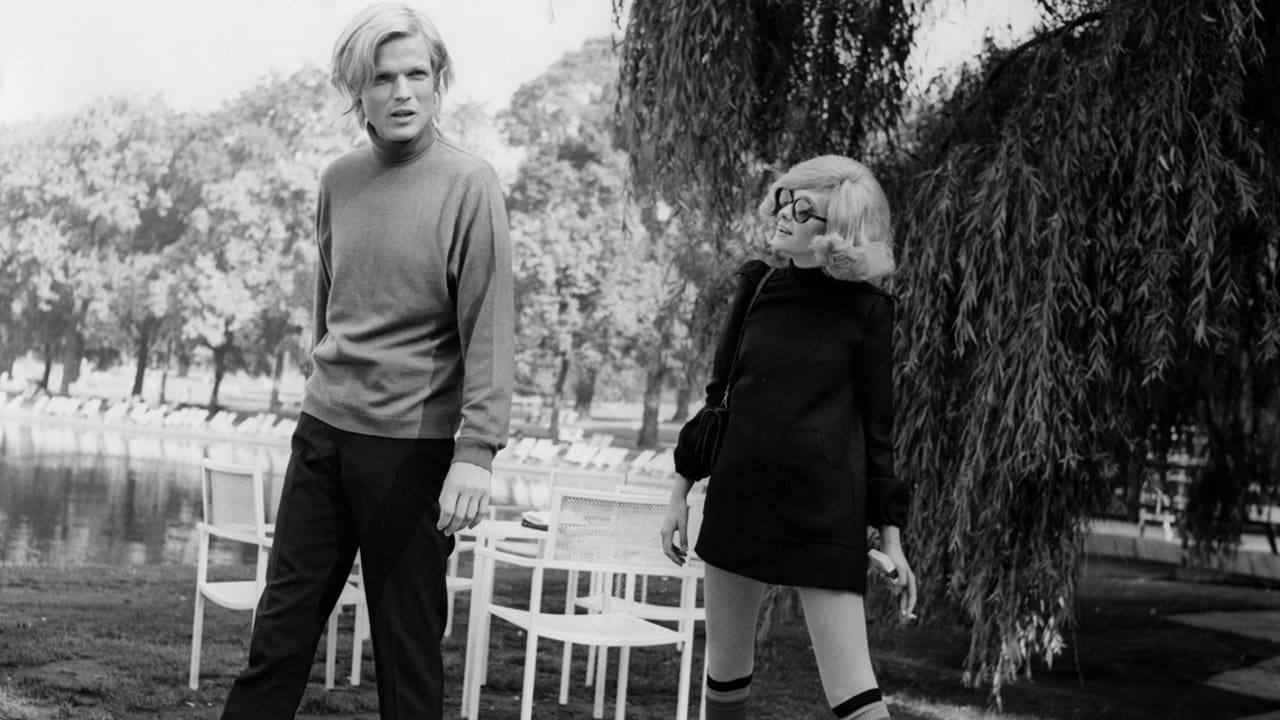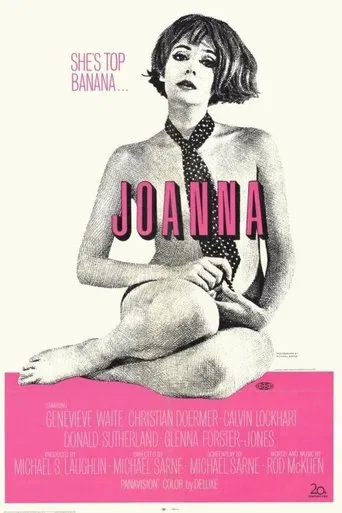

Wow. I wouldn't have believed 25 people actually watched this movie. From reading the reviews it seems like the finale was good. I didn't stay for it though. In fact I didn't stay much past the railway number. I saw what I could take of it on 8th St in the Village. I remember it being billed as Joanna - She's a Banana! No wonder that the "star" was run out of Britain after making this. Joanna stands out as the worst movie I ever saw in a theater, and that's by a long shot! I often think of it when I see a lousy movie. It serves as a baseline for comparison, so for that reason I'm glad I saw it. In 42 years, that's since 1968,I have not seen a worse movie. That's something to be thankful for.
... View MoreJoanna is a campy but enjoyable look at Mod Swingin' London. Coming near the end of 1968, it was probably the last of its genre and, as such, was ready to camp it up even if its filmmakers were not entirely conscious of this. To a certain extent, Joanna may even anticipate the nostalgia fad for the 30s and 40s that was to fully flower in the early 70s. Its self-consciousness as a film lacks the sharpness of the French New Wave and is instead more 70s self-indulgent. This is not a bad thing, however, since a benign self-indulgence is probably the film's main theme and its main virtue for those viewers who don't totally dismiss it.My favorite part of the film occurs somewhere in the middle. Joanna, in bed with a man she picked up the night before, is forced to depart early when the man's wife unexpectedly returns home and enters the bedroom. Joanna gets out of bed nude, steps into a long, shocking pink 1930s-style gown, and leaves without saying a word. For the next several minutes of screen time, she walks through London while Rod McKuen's music plays on the soundtrack. When you think this can't go on for any longer, a male singer begins singing "When Joanna Loved Me", a song from earlier in the 60s. Now, instead of walking, we see Joanna smiling, chasing pigeons in a park, re-embracing life. Not quite the final moments of Fellini's Nights of Cabiria, but it works and it's worth at least one viewing.
... View MoreI remember this film as one which helped to define my life in college in the late 60's. I must have seen it along with my friends 10 times. We had the songs memorized and would sing them everywhere. I can't really understand the negative comments about this film. I would really like to find a copy out there somewhere so I could see it again. Does anyone have a copy?
... View MoreI knew there was something special about this movie after my law school roommate asked me out of the blue how many times I'd seen Joanna. Turned out he had another friend who spent every weekend looking for this movie in the theaters (we're talking pre-video tape days here folks). I remember being carried away by the romance of this movie, feeling totally part of the London scene it portrayed, and I liked Donald Sutherland (whom I'd never seen act before) quite a lot. I guess Genevieve Waite never made it big as a film actress, but that picture of her clothed only in a necktie that ran in the New York Times ad for this film, with the trailer "Cult Film of the Decade," sure made an impression on me in my early 20's. Highly recommended.
... View More